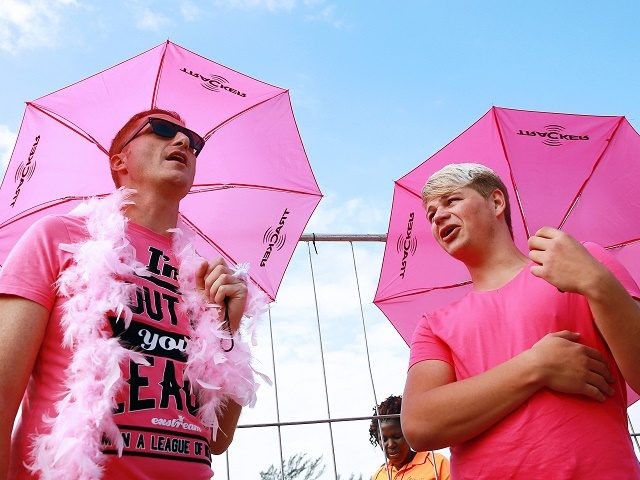ROME — The president of the German Bishops’ Conference Georg Bätzing has joined other German-language bishops and theologians in voicing his opposition to a recent Vatican declaration forbidding the blessing of same-sex couples.
“I believe that we have to assess homosexuality and lived partnerships outside of marriage differently,” said Bätzing, who is the bishop of the diocese of Limburg. “We can no longer proceed solely from natural law, but have to think much more in terms of care and personal responsibility for one another.”
“In this regard, I would like to see a further development of Catholic teaching on sexual ethics,” the bishop told the RedaktionsNetzwerk Deutschland (RND) this weekend.
Bätzing said that people in homosexual relationships want the blessing of the Church, and the Church must “address this desire.”
“We can no longer answer these questions simply with a ‘yes’ or ‘no.’ That is not possible,” he said.
“I understand the negative opinion of the Congregation for the Doctrine of the Faith, it reflects the state of Church teaching,” he said. “But that doesn’t help, because there has long been a pastoral development that goes beyond that.”
“And that means change is coming,” he concluded.
In March, the Vatican’s doctrinal office (CDF) issued a statement declaring that the Church has no authority to bless homosexual unions, noting that God Himself “does not and cannot bless sin.”
Blessings require both “the right intention of those who participate” and “that what is blessed be objectively and positively ordered to receive and express grace, according to the designs of God inscribed in creation,” stated the text, with the express approval of Pope Francis.
“For this reason, it is not licit to impart a blessing on relationships, or partnerships, even stable, that involve sexual activity outside of marriage,” it read, “as is the case of the unions between persons of the same sex.”
Progressive sectors in the Church reacted negatively to the Vatican statement, particularly in the German-speaking world where blessings of same-sex unions have become common.
Shortly after the publication of the text, over 200 German-speaking Catholic theologians released a statement defying the Vatican declaration, asserting it “is characterized by a paternalistic gesture of superiority and discriminates against homosexual people and their lifestyle.”
The theologians said the Vatican document was lacking “theological depth, interpretive understanding, and argumentative rigor.” By ignoring relevant “scientific findings,” they declared, “the Magisterium undermines its own authority.”
In a similar vein, Bishop Hermann Glettler of Innsbruck, Austria, apologized to anyone who felt offended by the declaration.
“You can never bless enough,” Bishop Glettler said, “because blessing means saying something good to someone and discovering that God has already written himself into people’s lives.”
Glettler stated that his position, “and that of many bishops and also many pastors, is that people who expressly ask for a blessing and want to go this way with the church should not be denied their blessing.”
Last week, Bishop Franz-Josef Overbeck of Essen also defied the Vatican’s ruling, saying he will allow his priests to bless same-sex couples.
Priests who bless gay couples in an upcoming LGBT-sponsored event called “Blessings for the unions of people who love each other” will not be sanctioned, Bishop Overbeck said.
“I am not going to do that with the priests,” said the German Prelate, adding that he will not “suspend” a priest or apply any other ecclesiastical punishments for blessing a same-sex couple.
While a number of German bishops have expressed their dissent from the Vatican teaching, others have welcomed the statement as a definitive answer to the issue of blessings for same-sex couples.
Among these are Cardinal Rainer Maria Woelki, Archbishop of Cologne; Freiburg Bishop Stephan Burger; Erfurt Bishop Ulrich Neymeyer; Eichstätt Bishop Gregor Maria Hanke; Görlitz Bishop Wolfgang Ipolt; Passau Bishop Stefan Oster; and Regensburg Bishop Rudolf Voderholzer.

COMMENTS
Please let us know if you're having issues with commenting.